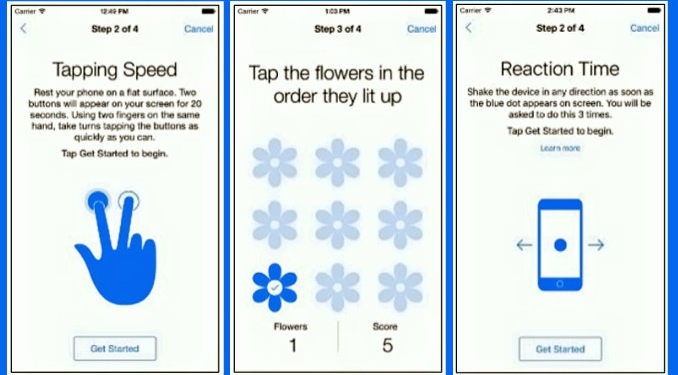
By Marco Torres | Prevent Disease
Scientists have developed a prototype for an app that's been designed for cannabis users so that they can determine whether or not they’re actually high. The app tests memory, attention, and reaction — traits that are often impaired by cannabis use.
The app, called “Am I Stoned”, has been created by researchers from the University of Chicago to assess the effects of cannabis on cognitive ability.
Co-authors Elisa Pabon, a doctoral student, and Harriet de Wit, a professor in the department of psychiatry and behavioral neuroscience, presented the app yesterday at the Emerging Biology conference in California.
The app, which has been supported by the National Institute on Drug Abuse Grant, provides users with a series of tasks to test the impact of cannabis use on memory, reaction time and attention span.
Cannabis is now legal in a small but growing number of countries. The medicinal use of cannabis is legal in a number of countries, including Canada, the Czech Republic, and Israel. Medical cannabis in the United States is legal in 29 states as of December 2016.
Researchers at the University of Chicago made the app in the hope that it will make cannabis use safer, helping those who take it understand how the drug is affecting them. “One of our long-term goals is for the app to improve the safety of cannabis use by making individual users more aware of their impairment,” says team leader Harriet de Wit.
Still, in its trial period, the app — called Am I Stoned — is also designed to collect data from users, which the team thinks will contribute to the overall scientific understanding of how cannabis affects people. For example, there is some evidence that moderate cannabis might reverse brain aging in the elderly.
The system was tested on 24 non-daily cannabis users who consumed a capsule containing either a placebo or 7.5 or 15 milligrams of tetrahydrocannabinol (THC), the ingredient in cannabis that intoxicates users. Participants then completed a range of tests designed to detect impairment on a computer and on a smartphone to test their motor skills and behavior. “The effects of THC on performance may be subtle, so we need highly sensitive tasks to detect impairments,” says team member Elisa Pabon.
The reason cannabis is so effective medicinally is directly related to its ability to interact with receptors in the body which inhibit inflammation and prevent disease. Cannabis does this so well, that few drugs can compete with its level of potency which comes essentially with no side effects.
The team would also like to add tasks that analyze changes in time perception, Pabon said, as well as have their app collect a data history for each user. Ideally, people would use the app to figure out whether they’re too stoned to drive or undertake other potentially risky activities, by comparing their score to those taken earlier while sober.
Pabon and her team are already underway with the next phase of their research, testing out improvements to the app, which they hope to complete by the summer. And if things go well, they plan to submit the findings from both phases to a peer-reviewed journal.
The team is presenting the results of an initial trial at the American Society for Pharmacology and Experimental Therapeutics annual meeting in San Diego this week. Once they have improved the app’s sensitivity, the researcher will consider releasing it to the public.















